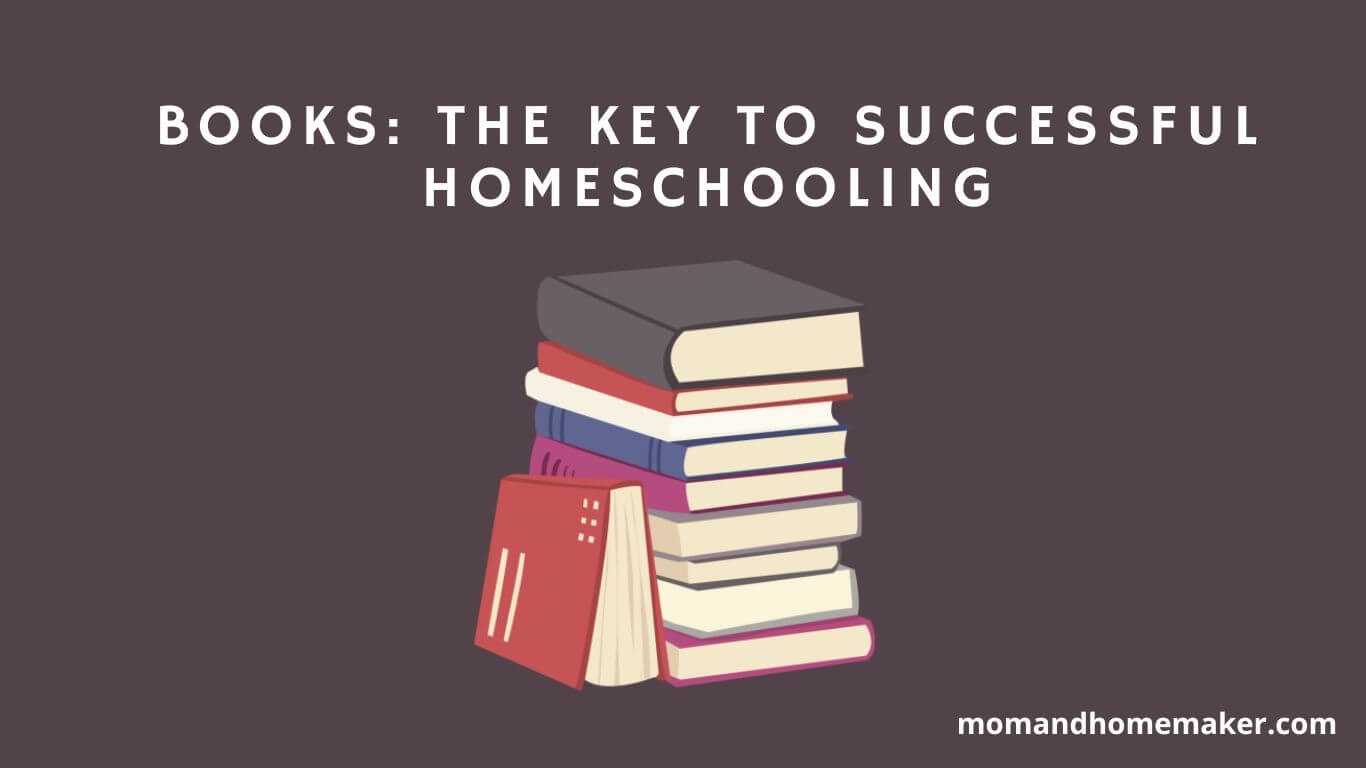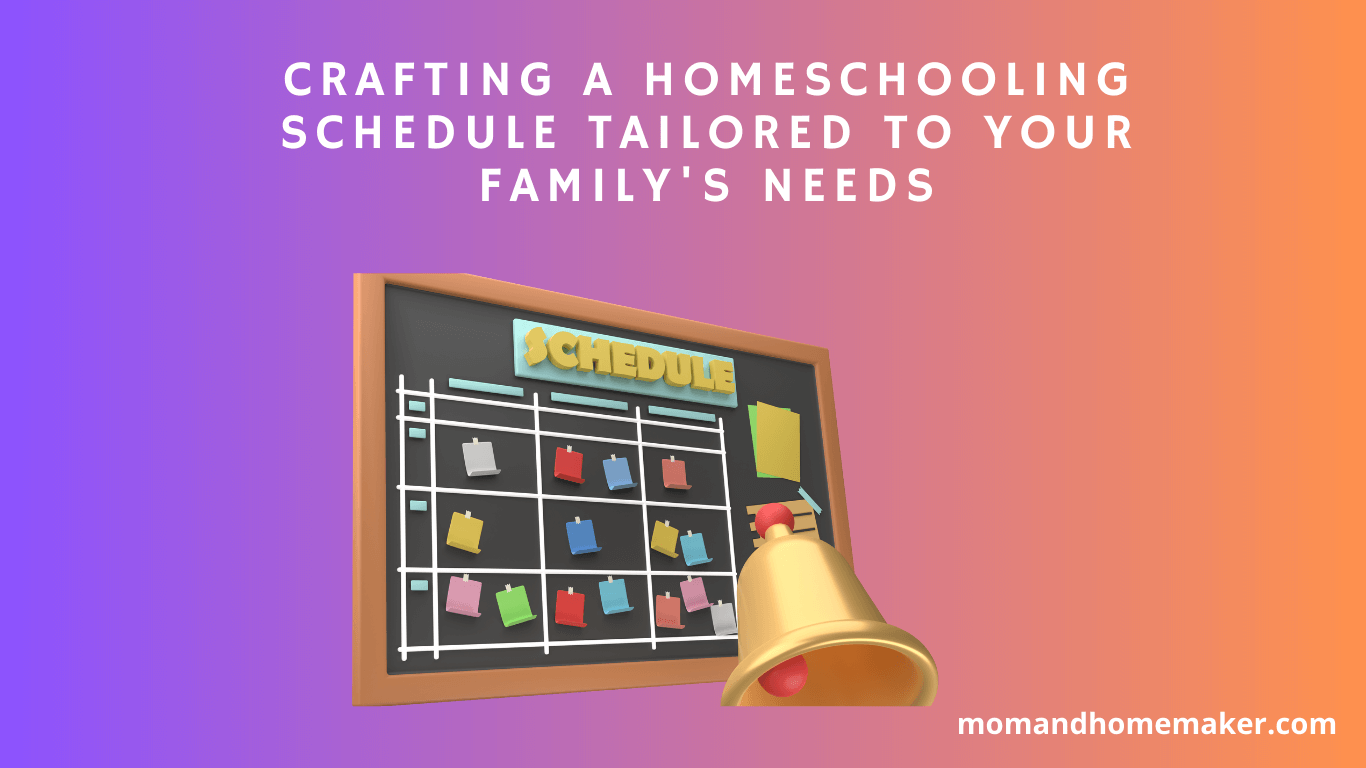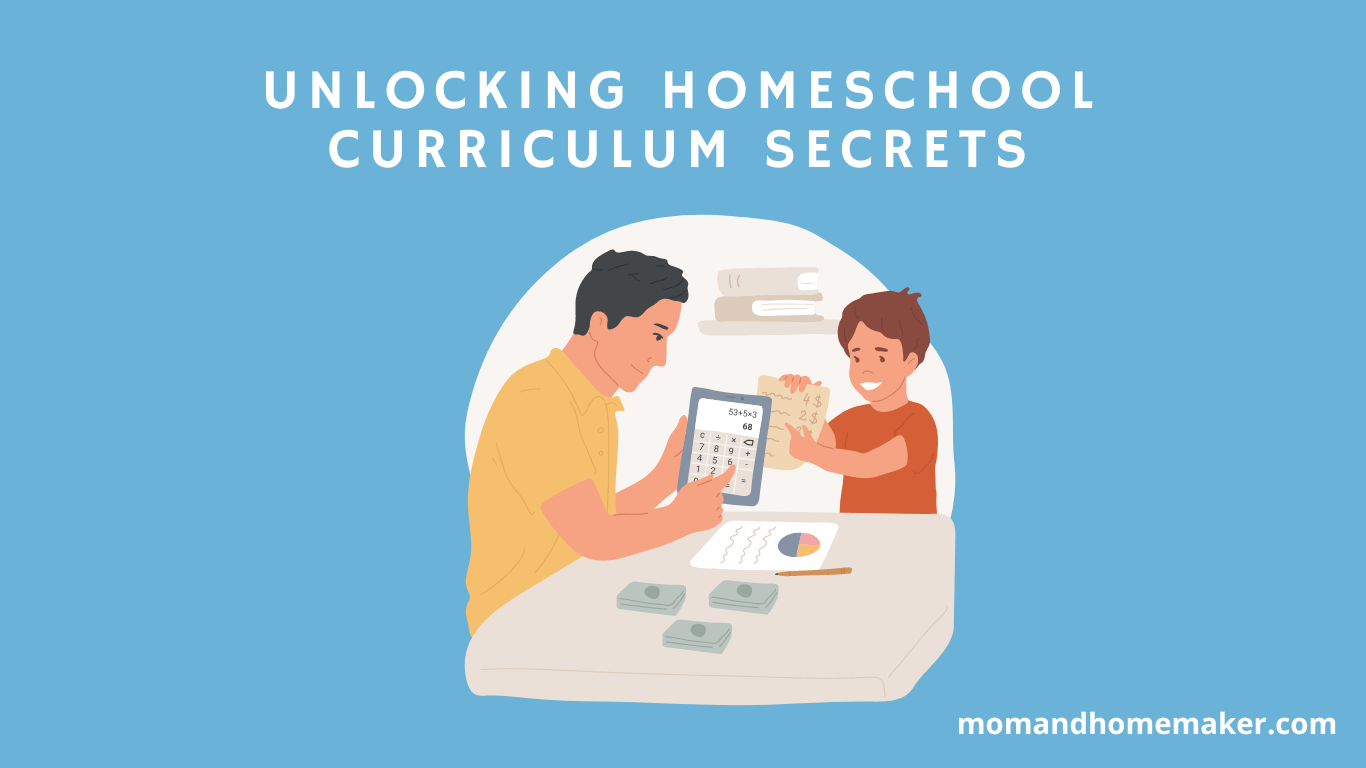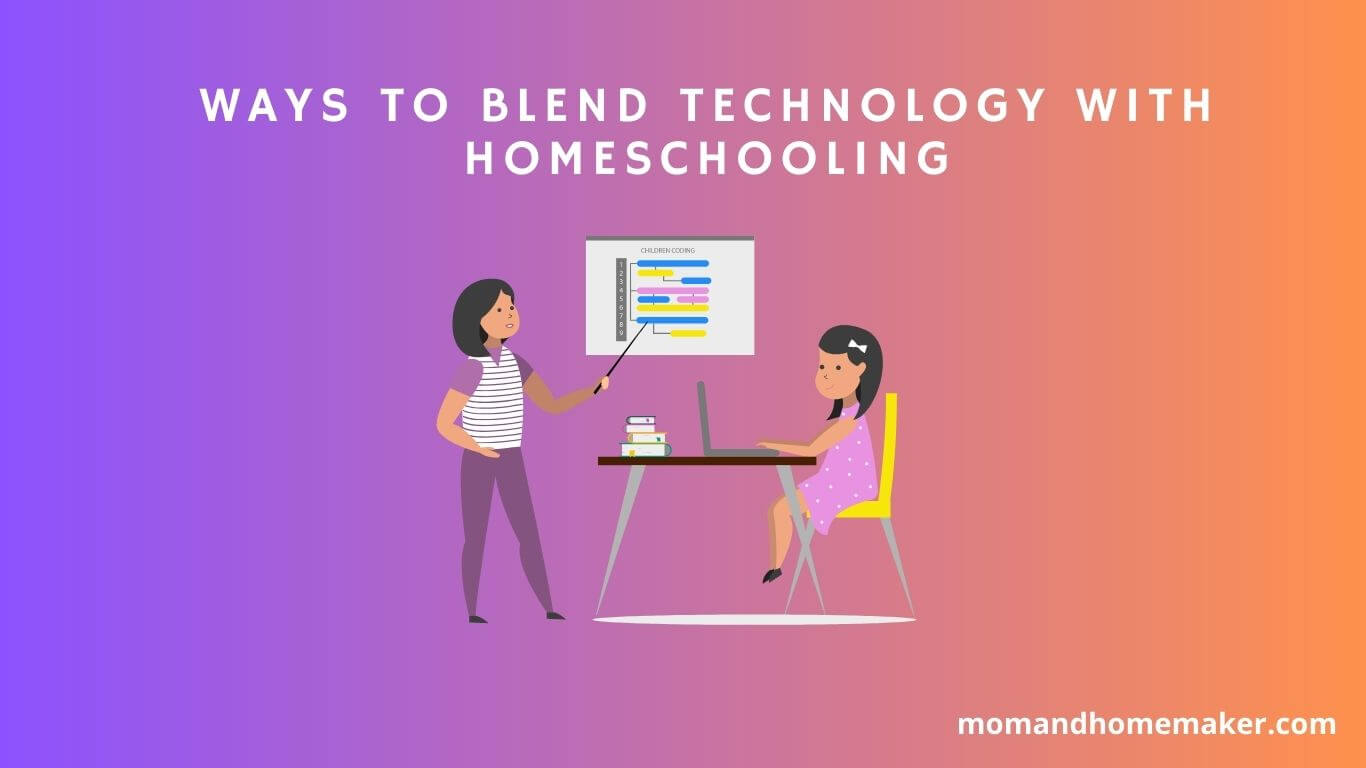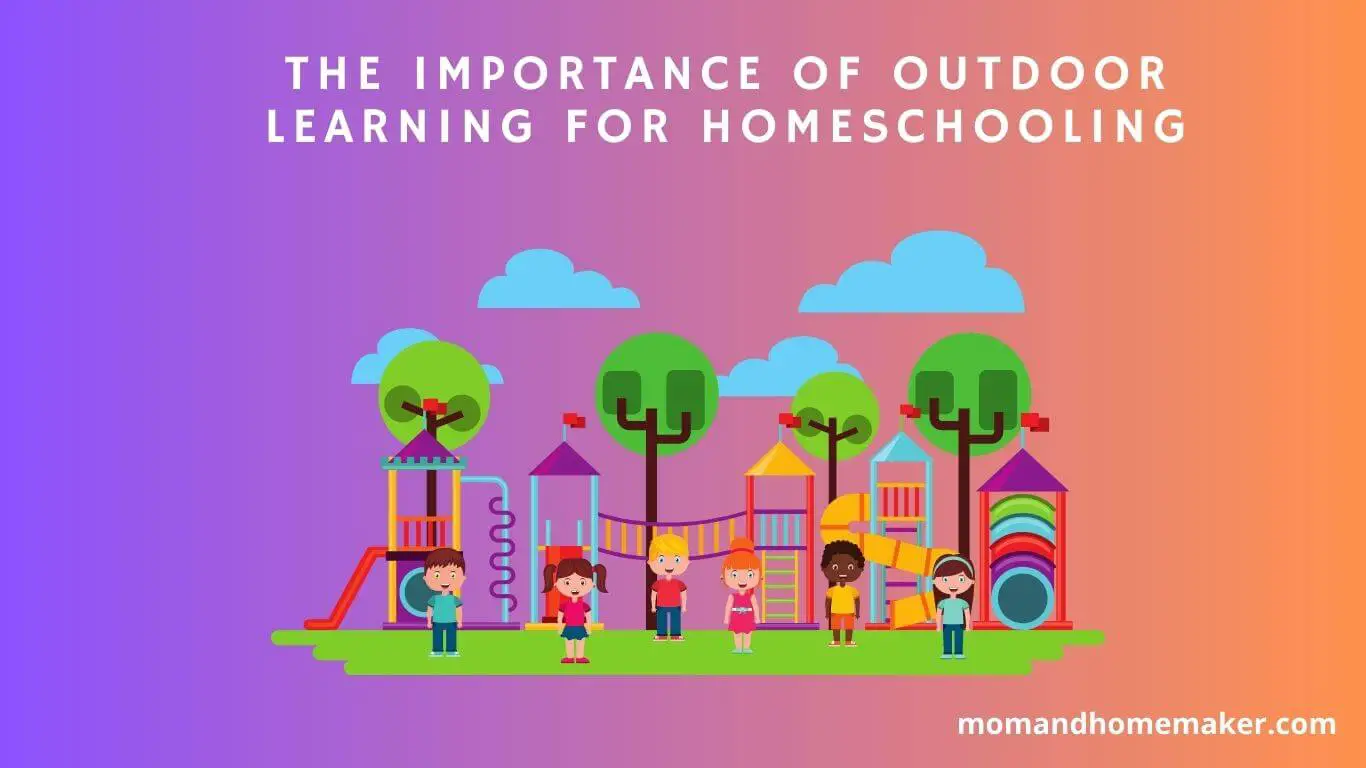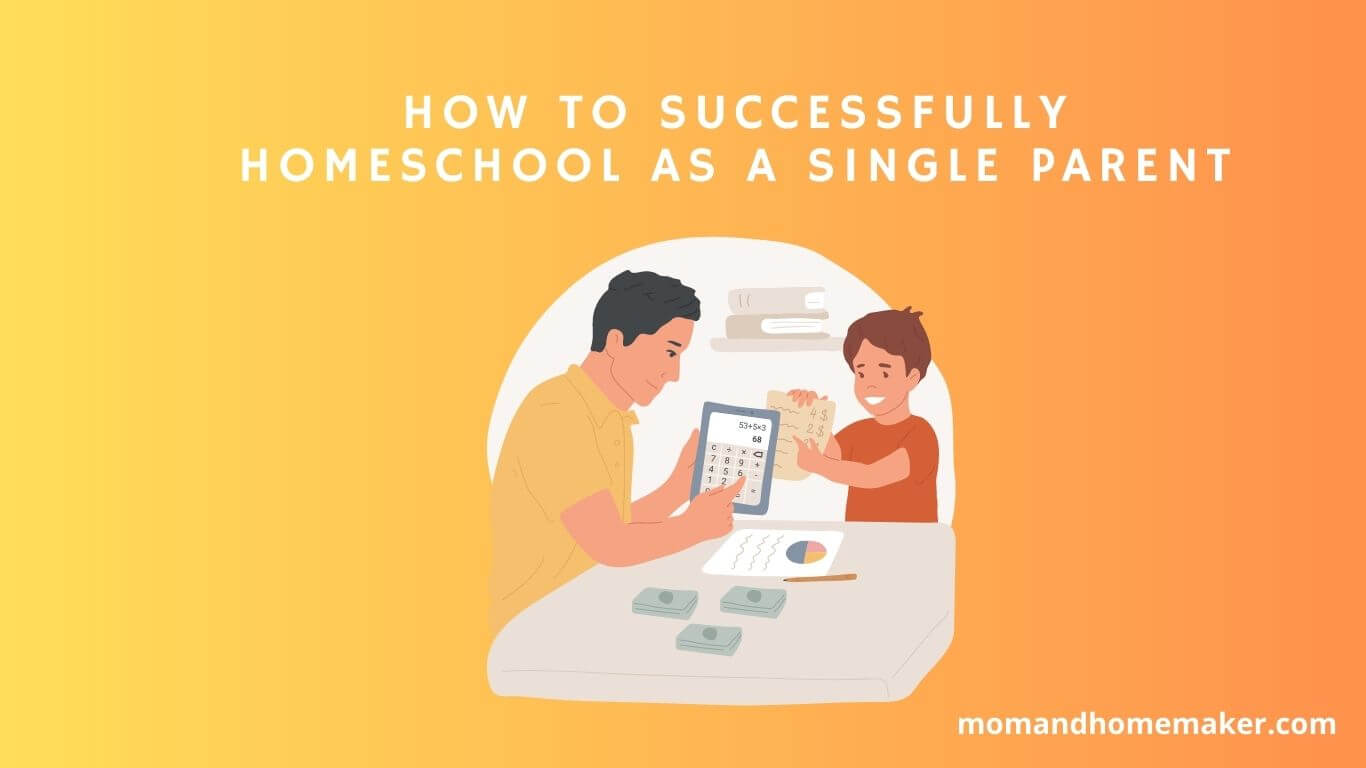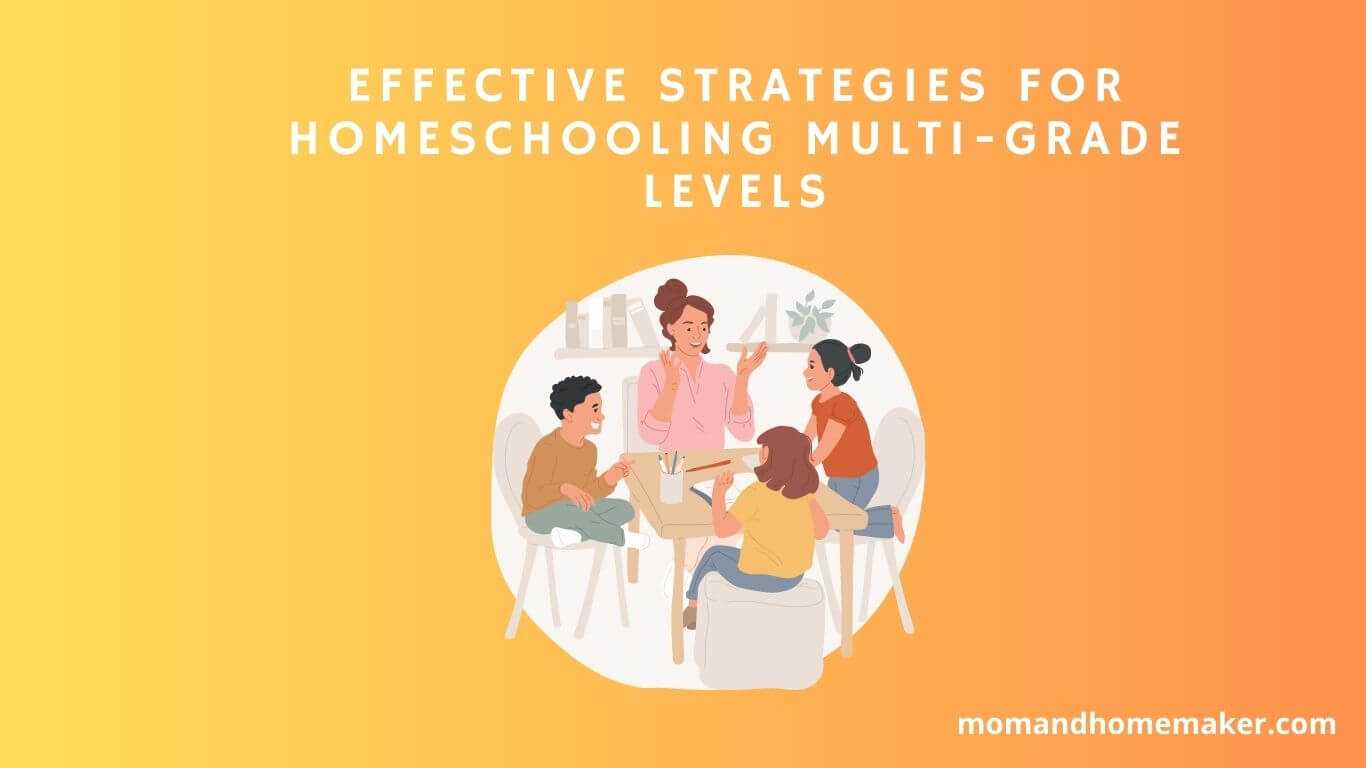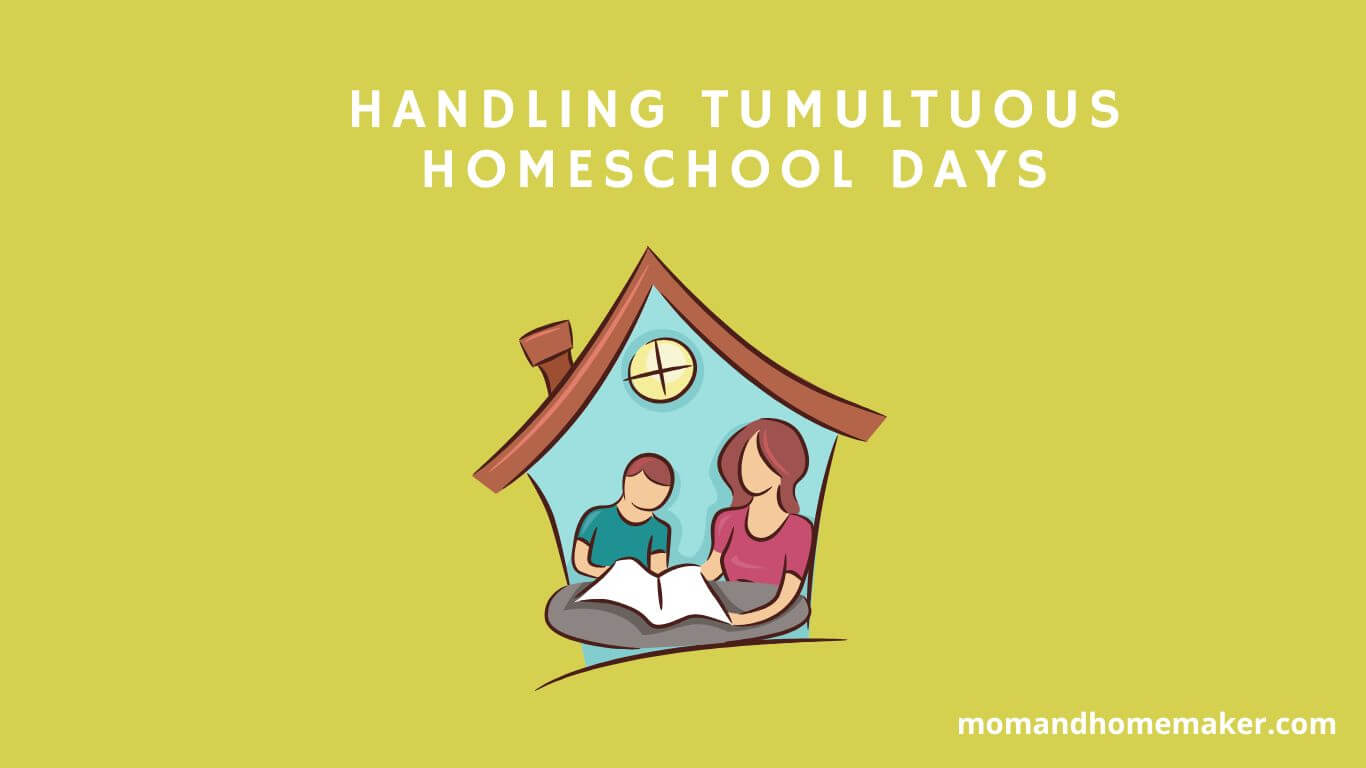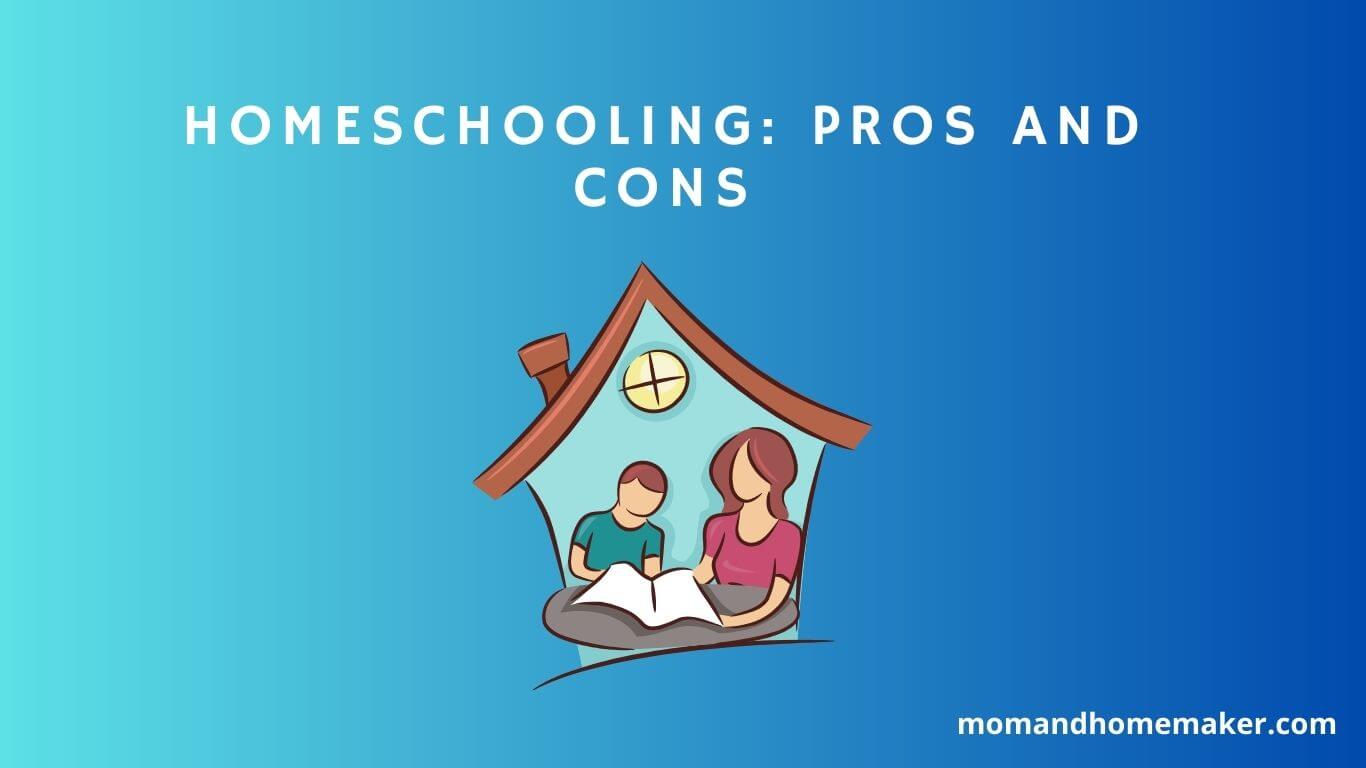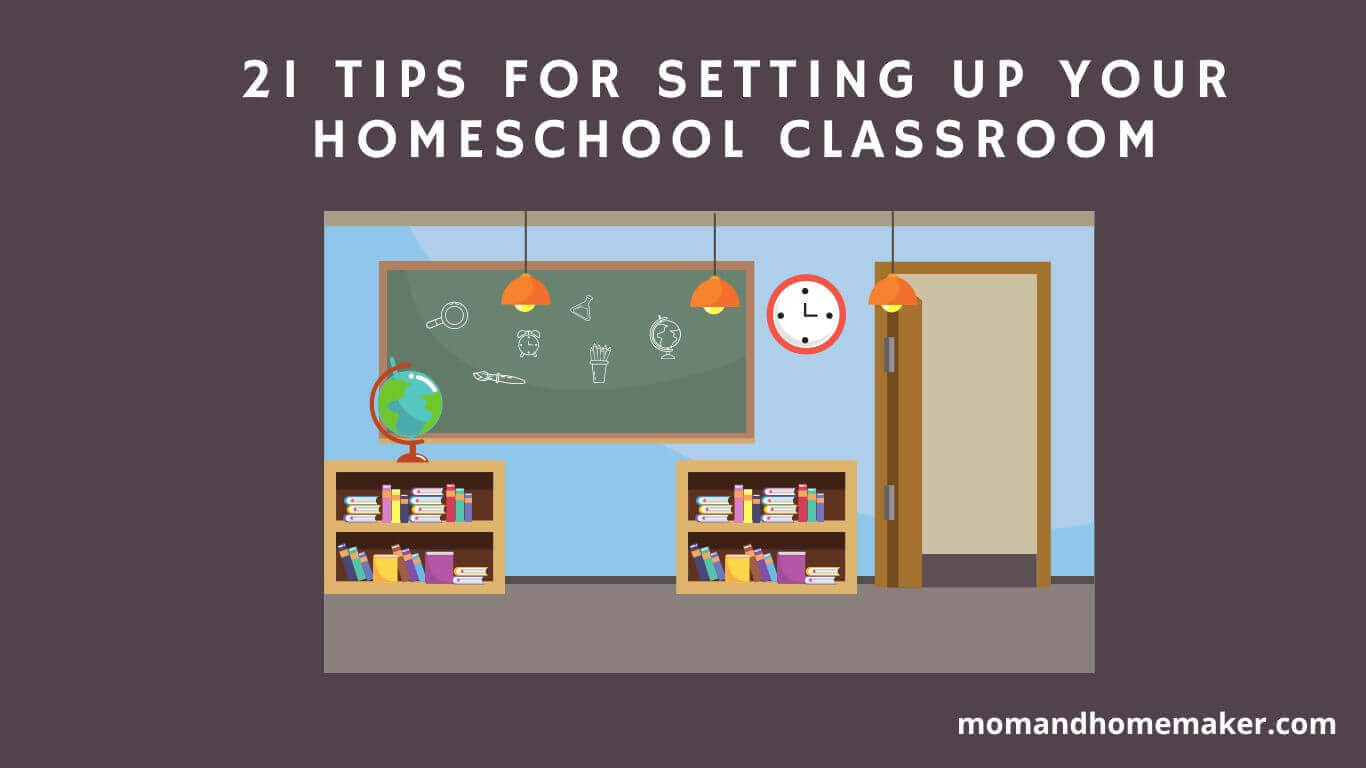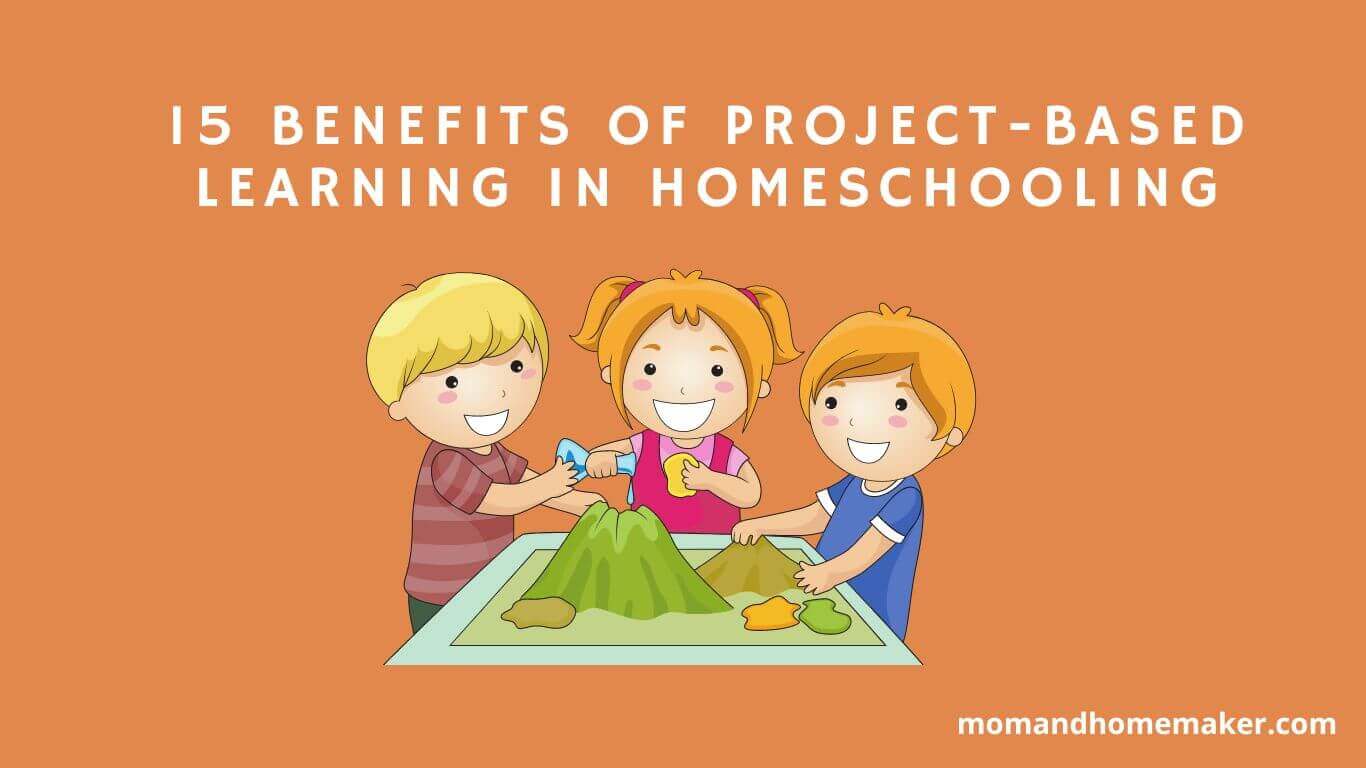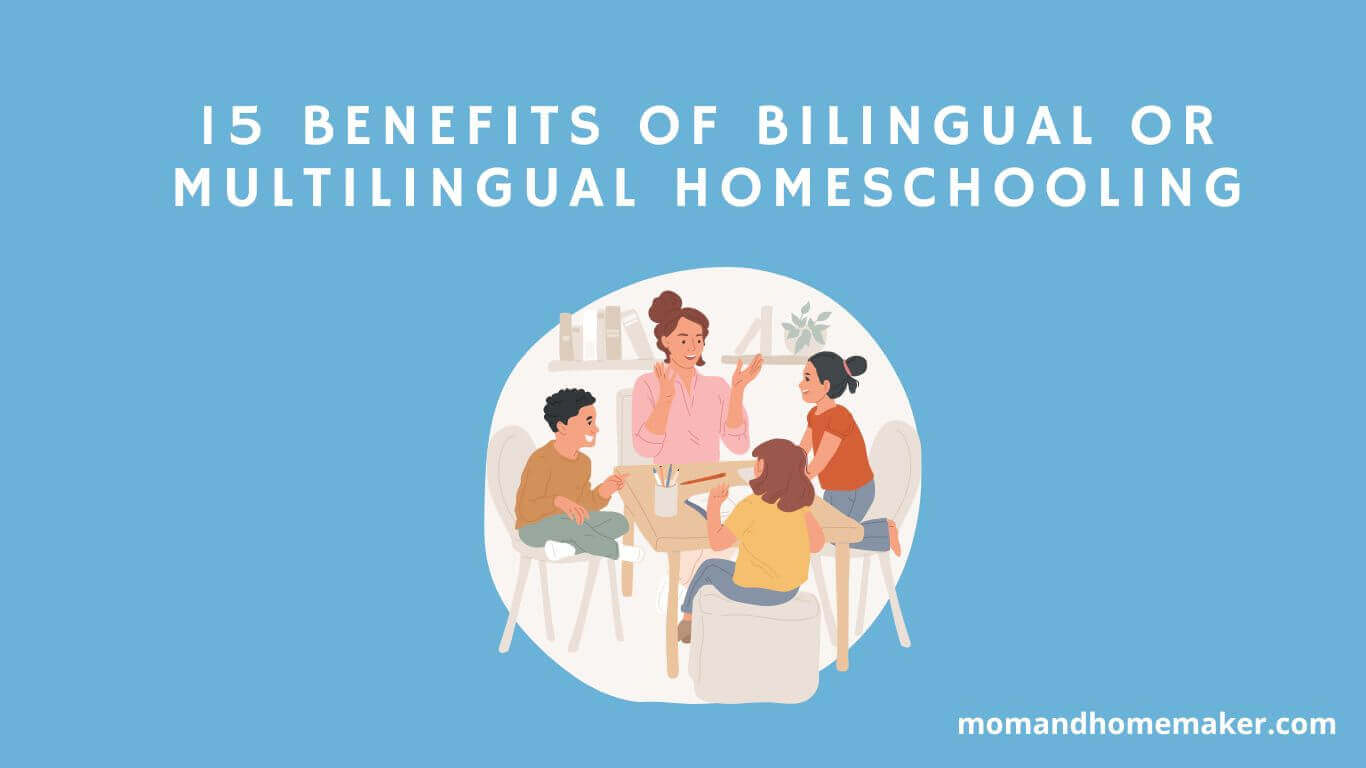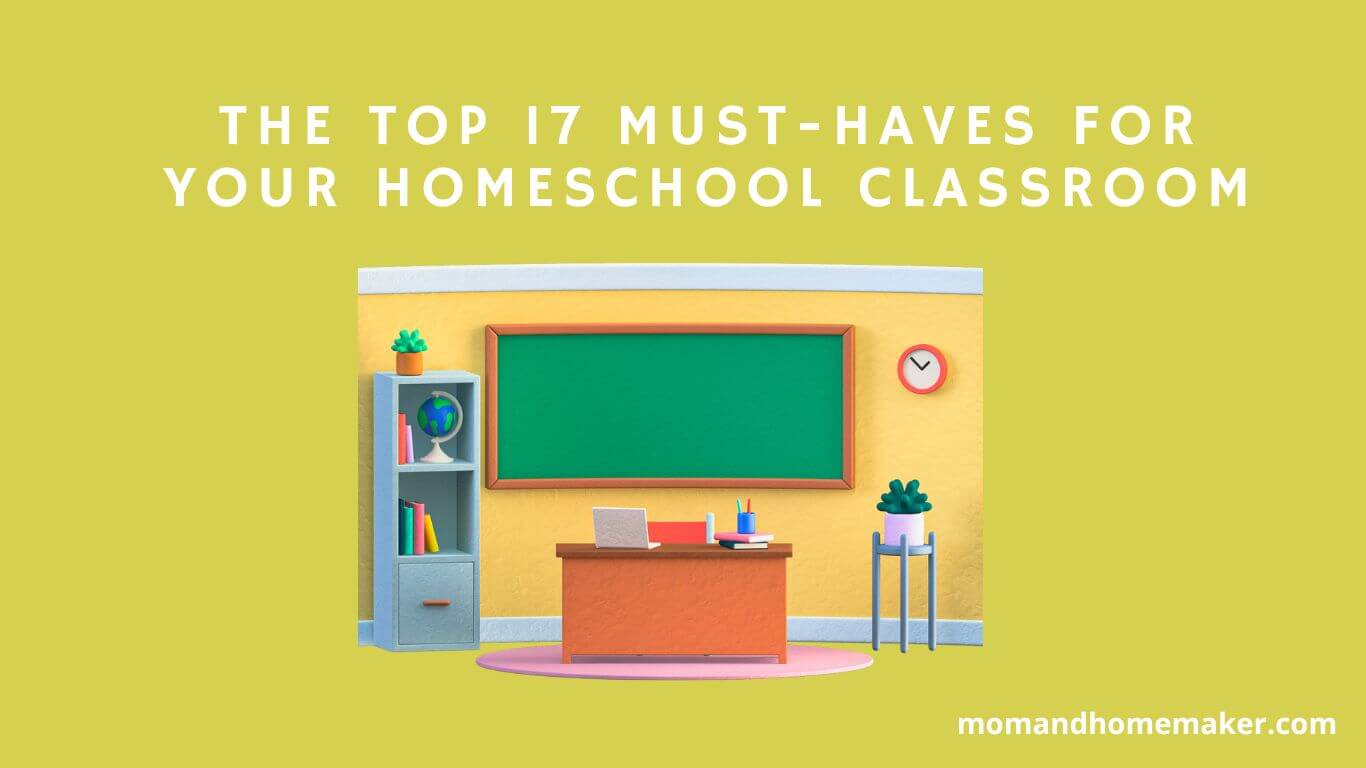As someone who has been in the homeschooling game for a few years now, I can attest to the importance of having access to great books in your classroom. After all, reading is the foundation of any successful education – it helps kids develop critical thinking skills, expand their vocabulary, and gain knowledge about the world around them.
But let’s face it: finding quality books that are both age-appropriate and engaging can be a challenge. That’s why I’m excited to share with you some tips and tricks for building a robust library that will keep your kids excited about learning.
By investing in great literature and making it accessible to your students, you’ll be well on your way to creating an enriching homeschool environment that fosters curiosity, creativity, and a lifelong love of reading.
Table of Contents
Reasons Why Books Are Essential in Homeschooling
Reading books helps with intellectual development by expanding vocabulary and improving comprehension skills. When children read challenging works, they learn how to analyze texts critically, ask probing questions and make connections between different concepts. These skills are essential not only for academic success but also for everyday life.
But the benefits of books extend beyond just academics. They also help promote cultural awareness and emotional intelligence. By reading works from diverse authors and cultures, children gain a deeper understanding of the world around them and develop empathy toward others. Through reading about different experiences and perspectives, children learn how to navigate their own emotions better and become more self-aware.
With all these benefits in mind, it’s clear why access to great books is non-negotiable in any homeschool curriculum. In the next section, we’ll explore how to find quality books that will enhance your child’s learning experience even further.
See more in the table below:
| Reason | Explanation |
|---|---|
| 1. Develops Reading Skills | Books can help build a child’s reading skills, which can help them better understand other subjects and materials. |
| 2. Encourages Self-Learning | Reading books can help children become more self-motivated and independent in their studies. |
| 3. Enhances Creativity | Reading books can spark creativity and encourage children to think outside the box. |
| 4. Enhances Problem-Solving Skills | Books often contain stories and characters that children can relate to and use to help them navigate their own lives. This can help develop problem-solving skills. |
| 5. Enhances Socialization | Reading books can provide children with a window into the lives of other people, which can help them understand different perspectives and cultures. |
How To Find Quality Books
When it comes to finding quality books for your homeschool classroom, there are several options available.
1. An option is to attend book fairs, which can be a great way to discover new titles and connect with other homeschooling families.
2. You may also want to check out online reviews of books before purchasing them. Many websites offer detailed reviews from other parents and educators, which can help you determine if a book is the right fit for your family.
3. Another option is to visit local bookstores in your area. Not only do many bookstores carry a wide variety of educational materials, but they may also offer personalized recommendations based on your child’s interests and age level. This can be especially helpful if you’re looking for books on a specific topic or subject area.
4. Finally, consider participating in book swaps with other homeschooling families. This can be a fun and cost-effective way to add new titles to your collection while also connecting with others who share your passion for learning. By sharing resources and ideas, you can create a supportive community that benefits everyone involved.
As you search for quality books for your homeschool classroom, keep in mind that each family’s needs and preferences will vary.
Tips For Selecting Books
When it comes to selecting books for your homeschool classroom, there are a few important things to keep in mind.
1. Reading strategies should be at the forefront of your mind. What type of books will engage your child and help them develop their reading skills? It’s important to choose books that will challenge them without being too difficult.
2. The key factor is ensuring that the books you choose are age appropriate. While it might be tempting to push your child to read more advanced material, it’s important not to rush their development. Make sure that the books you select are appropriate for their age and reading level.
3. Diversity is crucial when selecting books for your homeschool classroom. Look for authors from a variety of backgrounds and cultures, as well as books that focus on diverse characters and experiences. This can broaden your child’s understanding of the world around them and help them develop empathy and compassion.
4. Don’t forget about classic literature! While contemporary fiction is great, there’s something magical about sharing stories with your child that have stood the test of time. Classic literature can also provide a deeper understanding of history and culture.
By following these tips for selecting books, you’ll be able to create an engaging learning environment for your child that fosters a love of reading. In the next section, we’ll explore some of the benefits of exposing children to great books in their formative years.
Benefits Of Great Books
Now, I know what you’re thinking – “Oh great, another lecture on the benefits of reading.” We’re not just talking about any old books here. We’re talking about GREAT books. The kind of books that can transport you to another world and leave a lasting impression on your soul.
Aside from the sheer pleasure of getting lost in a good story, there are countless benefits to incorporating great books into your homeschool classroom. For starters, cognitive development is greatly enhanced when children are exposed to complex ideas and language structures found in the literature. This leads to improved critical thinking skills and better problem-solving abilities.
But it’s not just about academics – cultural enrichment is also a huge part of reading great books. By exploring different worlds and perspectives through literature, children gain a deeper understanding and appreciation for diverse cultures and ways of life. And let’s not forget about language acquisition! Reading exposes children to new vocabulary words and helps them develop stronger communication skills overall.
| Cognitive Development | Cultural Enrichment | Language Acquisition |
|---|---|---|
| Improved critical thinking skills | Deeper understanding and appreciation for diverse cultures | Exposure to new vocabulary words |
| Better problem-solving abilities | Exploration of different perspectives through literature | Stronger communication skills |
| Enhanced analytical reasoning | Increased empathy towards others | Improved writing abilities |
Last but certainly not least, reading great books stimulates the imagination like nothing else can. It’s a chance for children to explore new worlds, meet interesting characters, and dream up their own stories in turn. So if you want to give your homeschool classroom a boost in all these areas (and more), start incorporating great books into your curriculum today! In the subsequent section, we’ll dive into some different types of books to consider for your next read-aloud session or independent study time.
Different Types Of Books To Consider
When it comes to selecting books for your homeschool classroom, there are many different types to consider.
1. You might want to think about whether you prefer classic or contemporary literature. Classics such as Jane Austen’s Pride and Prejudice can provide a rich historical context and challenge students with more complex language. On the other hand, contemporary works by authors like Jason Reynolds can help kids connect with modern themes and perspectives.
2. Consider whether you want to focus on fiction or nonfiction works. Fiction novels can provide an imaginative escape while also teaching valuable lessons about empathy and social skills. Nonfiction books, such as biographies or historical accounts, can teach new information and help students develop their research skills.
3. You may also want to think about the format in which they are presented. Physical books offer a tactile experience that some readers may prefer, while digital books can be easier to access and store. Picture books are great for younger readers who benefit from visual aids, while chapter books are better suited for older students who are ready for longer stories with more complex plots.
4. Don’t forget about the importance of diverse voices. It’s crucial that children have access to stories from a variety of perspectives so they can learn empathy and understanding for people who may be different from themselves. Seek out authors from varied backgrounds and cultures to ensure your reading list is inclusive and representative of our diverse world.
Moving forward into utilizing libraries for homeschooling, there are many benefits to incorporating these community resources into your curriculum.
Utilizing Libraries For Homeschooling
As we discussed in the previous section, there are different types of books to consider when creating a successful homeschool classroom. But where can we access these books?
Sure, you can purchase them online or at a bookstore, but have you considered utilizing your local library? There are many benefits to using the library as a resource for homeschooling.
Not only is it cost-effective (hello, free books!), but it also provides access to a wide range of community resources and events. Many libraries offer reading programs and book clubs specifically tailored towards homeschoolers. Librarians can be invaluable resources for book selection and reading strategies.
When utilizing the library for homeschooling, it’s important to take advantage of all that it has to offer. Explore different sections and genres to find books that fit your child’s interests and learning style.
Consider joining a book club or attending reading events to foster a love of reading in your child. With so many great books available at your fingertips, exploring different topics has never been easier.
Exploring Topics With Great Books
When it comes to educating our children at home, we have the freedom to choose what and how we teach. One of the most exciting aspects of homeschooling is exploring topics through great books. The possibilities are endless.
One way to dive deeper into a subject is through genre exploration. For example, if your child is interested in science, you can read biographies of famous scientists or delve into science fiction books. If they love history, try reading historical novels or non-fiction accounts of significant events.
Another way to engage children with literature is through author studies. Choose a favorite author and read several of their works together as a family. Discuss their writing style, themes, and characters. Encourage your child to write their own stories inspired by the author’s work.
Historical fiction is an excellent way to bring history alive for children. It allows them to experience events from different perspectives and understand how people lived during that time period. You can also use historical fiction as a jumping-off point for further study by researching the time period and discussing how accurate the book was.
Literary analysis doesn’t have to be reserved for high school English classes; even young children can learn how to analyze literature critically. Ask questions like ‘Why did the character make that decision?’ or ‘What do you think the author was trying to convey?’ This skill will serve them well throughout their academic career.
Finally, incorporating multicultural literature into your homeschool curriculum will expose your children to diverse perspectives and cultures they may not encounter otherwise. Choose books written by authors from different backgrounds or about people facing unique challenges.
As we explore topics through great books in our homeschool classrooms, it’s essential to find books that fit our curriculum seamlessly while engaging our children’s interests. So let’s move on and discuss some tips for finding those perfect books!
Finding Books That Fit Your Homeschool Curriculum
As the saying goes, ‘books are a man’s best friend.’ In the case of homeschooling, books can be your child’s best friend too. But finding books that fit your curriculum and teaching style can be overwhelming at times.
1. You might wonder if the books you choose are age-appropriate or if they provide diverse perspectives. Don’t worry; there are plenty of classic literature and contemporary options that cater to every homeschooler’s needs.
2. Curriculum compatibility is essential when selecting books for homeschooling. It would help if you planned ahead of time, keeping in mind the subjects you want to cover each year. Once you have your curriculum mapped out, you can start looking for books that align with it. You can also find pre-packaged curriculums that come with a set of books based on a specific educational philosophy or approach.
3. Age-appropriate reading material is equally important when selecting books for your homeschooler. Pay attention to the recommended ages on book covers or seek advice from librarians or fellow homeschoolers. Books should foster creativity, and curiosity, and instill moral values while being engaging and fun to read.
4. Diverse perspectives are crucial when selecting reading materials for homeschoolers as they provide insights into different cultures and worldviews. Exposure to diverse perspectives helps build empathy and understanding in children, which is an essential life skill. Classic literature has stood the test of time but also considers contemporary options that offer fresh takes on various themes and issues.
5. Transitioning into utilizing digital resources for homeschooling, technology has made it easier than ever before to access vast libraries of e-books, audiobooks, and other digital resources online. The internet provides endless opportunities for learning new things through blogs, podcasts, educational websites & YouTube channels- all from the comfort of your home!
By incorporating digital resources into your homeschooling routine, you will be able to deliver exciting lessons while giving your child access to extensive learning materials beyond what traditional textbooks can offer.
Utilizing Digital Resources For Homeschooling
When it comes to homeschooling, utilizing digital resources can be a game-changer. There are certainly pros and cons to incorporating technology into your homeschool classroom, but the benefits can be substantial. For one, there are countless free ebooks available online that cover a wide range of genres and subjects. This can be incredibly helpful when trying to build out a diverse curriculum without breaking the bank.
Another way to use technology as a tool for learning is through interactive reading. Many books now have accompanying websites or apps that offer quizzes, games, and other activities that help reinforce what your child is reading. This kind of engagement can make reading more fun and memorable, which in turn helps with retention.
Audiobooks are also an excellent resource for homeschooling families. They allow for hands-free learning while driving or doing chores around the house. And if your child struggles with reading comprehension or decoding skills, audiobooks can help bridge the gap between oral and written language. Additionally, many libraries now offer audiobook rentals online, so you don’t even need to leave home to access them.
Connecting with other homeschoolers is another benefit of digital resources. Digital book clubs are a great way to meet other families who share similar interests and educational goals. These groups often discuss not only the books they’re reading but also their experiences with homeschooling in general. It’s an excellent opportunity for both parents and children to learn from others and gain new perspectives.
As you explore these digital resources, don’t forget about seeking out recommendations from homeschooling communities. There are countless blogs, forums, and social media groups dedicated to sharing ideas and advice on everything from lesson planning to finding the best deals on curriculum materials. By tapping into these networks, you’ll have access to a wealth of knowledge that can help make your homeschool journey smoother and more enjoyable.
How To Encourage Engagement With Books
As a homeschooling parent, I know firsthand the importance of access to great books. But simply having access to books is not enough – we must also encourage our children to engage with them.
1. Through reading aloud. Reading aloud not only helps children improve their listening skills but also exposes them to new ideas and vocabulary.
2. Encourage engagement with books through book discussions. This can be done as a family or with other homeschooling families in your community. By discussing what they have read, children are able to deepen their understanding of the material and learn from each other’s perspectives. It also promotes critical thinking skills and improves communication.
3. Consider implementing reading rewards and writing responses. For example, you could offer a small prize for every five books read or have your child write a summary or review of each book they finish. Additionally, participating in reading challenges can help motivate children to read more and broaden their literary horizons.
4. Utilizing book clubs can also promote learning and provide opportunities for socialization with peers who share similar interests. Homeschooling communities often have book clubs specifically designed for different age groups and genres of literature. By joining these clubs, children can discuss books with others who have also read them, gain new insights and perspectives on literature, and build lasting friendships.
By incorporating these strategies into your homeschool classroom, you can foster a love of reading in your children that will benefit them for years to come.
Utilizing Book Clubs To Promote Learning
Imagine you’re in a room filled with people who share the same passion for reading as you do. Individually, you all have different perspectives, opinions, and interpretations of the book assigned to read. But as a group, you come together to discuss and learn from each other.
This is the power of book clubs – not only do they provide an opportunity to improve reading skills, but they also enhance critical thinking, communication, and group dynamics.
To make the best out of your homeschool book club, it’s important to use effective reading strategies that cater to different learning styles. Some students may prefer to annotate or highlight key points while others may like to take notes or summarize chapters.
Discussion prompts can also help stimulate conversation and encourage participation from everyone in the group. When selecting books for your club, consider criteria such as relevance to your curriculum, diversity in authors and genres, and appropriateness for age range. Keeping track of what books have been read and discussed can be easily done through record-keeping techniques such as a log or spreadsheet.
Book clubs offer a unique opportunity for both parents and students to engage in thoughtful discussion and gain insight into different perspectives. By implementing effective reading strategies, discussion prompts, and selection criteria, students can develop invaluable skills while fostering a love for reading within their homeschool community.
Creating A Homeschool Library
As we discussed in the previous section, book clubs are an excellent way to promote learning and create a love for reading in your homeschool classroom. But, what about having access to great books all year round? That’s where creating a homeschool library comes in!
Not only does it provide easy access to books, but it also allows you to organize them according to your curriculum. Book organization is key when building a homeschool library. You can categorize books by subject matter or grade level, making it easier for your children to find what they need. Budgeting tips are also important when creating a library. You don’t have to break the bank on new books—used bookstores and online marketplaces like eBay or Amazon offer affordable options.
Creating reading lists is another way to maximize the benefits of your homeschool library. This will help you stay on track with your curriculum while introducing new authors and genres to your children. And if space is an issue, don’t worry. DIY bookshelves and other space-saving solutions are available online that won’t take up too much room in your home.
By creating a homeschool library, you’re not only providing access to great books all year round but also promoting a love for reading among your children. Book organization, budgeting tips, creating reading lists, DIY bookshelves, and space-saving solutions are just some of the things you can do when creating a homeschool library. So why wait? Start building yours today!
Conclusion
In conclusion, as a homeschooling parent, I have found that access to great books is the key to successful homeschooling. By making quality books readily available to our children, we can inspire them to love learning and foster a lifelong appreciation for literature.
But finding these books can be challenging, which is why it’s important to seek out recommendations from other homeschooling communities and utilize book clubs to promote engagement. By creating a homeschool library filled with diverse and engaging titles, we are providing our children with the tools they need to succeed academically and personally.
So let’s embrace the power of books and give our children the gift of knowledge and imagination. After all, reading is not just about gaining information but also about experiencing different worlds and viewpoints – and that’s something truly priceless.

